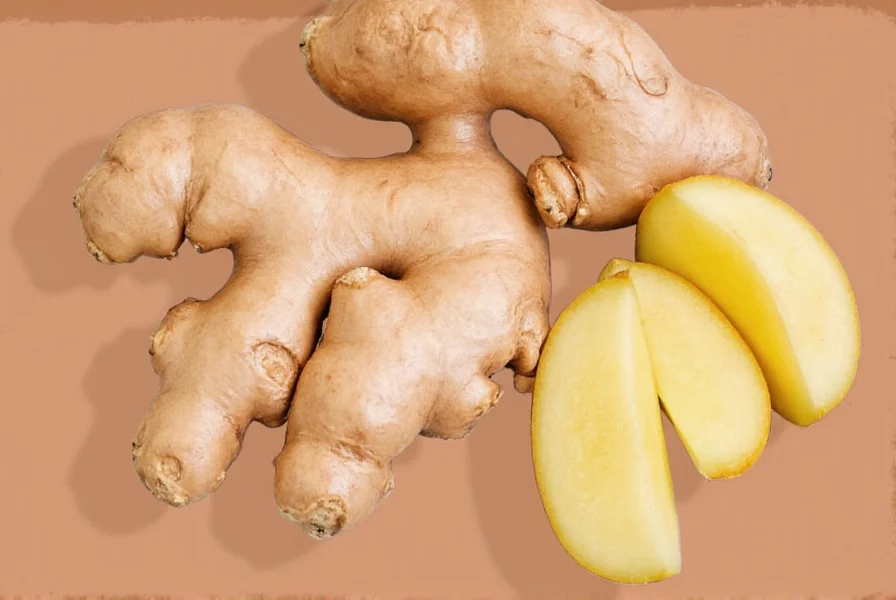When you're battling a cold, many turn to natural remedies for relief. Ginger stands out as one of the most researched herbal options for respiratory symptoms. Let's examine what science actually says about ginger's effectiveness against cold symptoms and how to use it properly.
The Science Behind Ginger and Cold Symptoms
Ginger (Zingiber officinale) contains potent bioactive compounds like gingerols and shogaols that demonstrate anti-inflammatory, antioxidant, and potential antiviral properties in laboratory studies. These properties form the scientific basis for ginger's traditional use in respiratory ailments.
A 2013 study published in the Journal of Ethnopharmacology found that ginger extracts inhibited the activity of human respiratory syncytial virus (RSV) in cell cultures—a common cause of cold-like symptoms. However, test tube results don't always translate to human effectiveness.
| Research Finding | Study Type | Relevance to Colds |
|---|---|---|
| Ginger reduced nausea in 70% of participants | Clinical trial (2012) | Helpful for cold-related nausea |
| Ginger decreased throat inflammation markers | Animal study (2015) | Potential sore throat relief |
| No significant reduction in cold duration | Human trial (2018) | Limited impact on overall cold |
How Ginger May Help Specific Cold Symptoms
Ginger doesn't cure the common cold virus, but evidence suggests it may provide relief for several uncomfortable symptoms:
Nausea and Digestive Discomfort
Multiple studies confirm ginger's effectiveness against nausea. A systematic review in Nutrition Journal concluded that 1-1.5 grams of ginger significantly reduced nausea symptoms. When colds cause stomach upset or you're experiencing post-nasal drip nausea, ginger tea can provide noticeable relief.
Sore Throat Relief
Ginger's anti-inflammatory properties may help soothe irritated throat tissues. The warmth of ginger tea provides additional comfort, while compounds in ginger may reduce inflammation in the throat lining. Try combining ginger with honey—a proven cough suppressant—for enhanced soothing effects.
Immune System Support
While ginger won't prevent colds, its antioxidant properties may support overall immune function. Research shows ginger enhances certain immune responses in laboratory settings, though human evidence for cold prevention remains limited.

What the Research Doesn't Support
Despite popular claims, current evidence doesn't support several common beliefs about ginger and colds:
- Ginger doesn't shorten cold duration - Most human studies show no significant reduction in how long colds last
- It's not a proven antiviral treatment - Lab studies show promise, but human evidence is lacking
- It won't reduce fever effectively - Unlike medications like acetaminophen, ginger has minimal impact on fever
Safe and Effective Ways to Use Ginger for Cold Relief
For those seeking natural symptom relief, here are evidence-based preparation methods:
Ginger Tea Recipe
Peel and slice 1-2 inches of fresh ginger root. Simmer in 2 cups of water for 10-15 minutes. Strain and add honey or lemon to taste. Drink 2-3 times daily while symptoms persist. This preparation maximizes the extraction of beneficial compounds while providing soothing warmth.
Ginger Chews or Candies
For sore throat relief on the go, ginger chews can provide localized soothing effects. Look for products with real ginger extract rather than artificial flavors for potential benefits.
Ginger in Cooking
Incorporate ginger into soups and broths. The classic Asian remedy of ginger-infused chicken soup combines multiple symptom-relieving elements: hydration, warmth, electrolytes, and ginger's bioactive compounds.

Safety Considerations and Limitations
Ginger is generally safe for most adults when used in culinary amounts or as a short-term remedy. However, certain precautions apply:
- Limit to 4 grams daily to avoid potential heartburn or mouth irritation
- Consult your doctor before using ginger if you take blood thinners
- Discontinue use if you experience allergic reactions like rash or swelling
- Not recommended for children under 2 years old
Remember that ginger serves as complementary support, not a replacement for medical care. If you experience high fever, difficulty breathing, or symptoms lasting more than 10 days, consult a healthcare professional.
When Ginger Might Not Be Your Best Option
While ginger helps many with cold symptoms, it may not suit everyone. People with certain conditions should exercise caution:
- Those with gallstone disease may experience worsened symptoms
- Individuals with bleeding disorders should consult doctors first
- People scheduled for surgery should stop ginger use at least 2 weeks prior
- Pregnant women should limit intake to culinary amounts without medical approval
Complementary Natural Remedies Worth Considering
For comprehensive cold symptom management, consider combining ginger with other evidence-supported natural approaches:
- Honey - Proven to reduce cough frequency and severity, especially in children over 1 year
- Vitamin C - May slightly reduce cold duration in some populations
- Steam inhalation - Provides temporary relief for nasal congestion
- Adequate hydration - Essential for thinning mucus and supporting recovery
These approaches work best when combined with rest and proper nutrition during your cold recovery process.
Conclusion: Managing Expectations with Ginger
Does ginger help with cold symptoms? Research suggests yes for specific symptoms like nausea and sore throat, but no for curing the cold itself. Ginger tea for cold relief remains a valuable complementary approach when used appropriately alongside conventional care.
The most effective cold management combines evidence-based symptom relief with adequate rest and hydration. While ginger won't eliminate your cold, it can make the recovery process more comfortable when used as part of a comprehensive approach to cold symptom management.
Does ginger actually shorten the duration of a cold?
Current scientific evidence does not support that ginger significantly shortens cold duration. While some studies show ginger may alleviate specific symptoms like nausea and sore throat, research has not demonstrated it reduces the overall length of a cold. Most human trials indicate ginger provides symptomatic relief rather than altering the course of the viral infection.
How much ginger should I consume for cold relief?
For cold symptom relief, studies suggest 1-3 grams of fresh ginger daily, typically prepared as tea. This equals about 1-2 inches of fresh ginger root simmered in 2 cups of water for 10-15 minutes. Do not exceed 4 grams daily to avoid potential side effects like heartburn. Always consult your healthcare provider before using ginger therapeutically if you have underlying health conditions.
Can children use ginger for cold symptoms?
Children over 2 years can safely consume small amounts of ginger for cold relief, typically in the form of diluted ginger tea. For children 2-6 years, limit to 1/4-1/2 teaspoon of fresh ginger in tea; for children 6-12 years, 1/2-1 teaspoon. Never give honey to children under 1 year, so avoid honey-ginger combinations for infants. Consult a pediatrician before using ginger therapeutically in children.
What's the most effective way to prepare ginger for cold relief?
The most effective preparation is fresh ginger tea: peel and slice 1-2 inches of ginger root, simmer in 2 cups water for 10-15 minutes, then strain. Adding lemon provides vitamin C while honey offers additional soothing properties for sore throats. Fresh ginger contains higher concentrations of active compounds than dried or powdered forms. For best results, drink 2-3 times daily while cold symptoms persist.
Are there any medications that shouldn't be combined with ginger?
Yes, ginger may interact with certain medications. It can enhance the effects of blood thinners like warfarin, potentially increasing bleeding risk. Ginger might also lower blood pressure, so use caution when combining with hypertension medications. If you take diabetes medications, ginger could potentially enhance their blood sugar-lowering effects. Always consult your healthcare provider before using ginger therapeutically if you're taking prescription medications.











 浙公网安备
33010002000092号
浙公网安备
33010002000092号 浙B2-20120091-4
浙B2-20120091-4